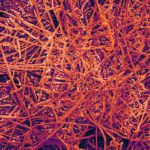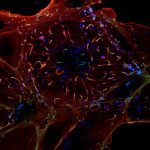We are seeking to recruit a postdoctoral fellow for our newly tenured laboratory at the Institut Pasteur in Paris.
Science:
In the laboratory we study how epigenetics contribute to establishing the delicate balance that exists between homeostatic responses to commensal bacteria and virulence processes to pathogenic bacteria. Uncovering the mechanisms at the root of this balance is crucial for understanding how invasive infections begin, how asymptomatic colonizations are maintained, and for potential designing of treatment.
We have integrated histone modifications in phenotypic responses to bacteria to show important mechanisms exploited by bacteria to subvert the host and impose an efficient infection 1–4, but have also demonstrated that chromatin modifiers can be critical regulators of homeostasis and bacterial containment 5. To all of our projects we bring our multidisciplinary expertise, mixing molecular genetics to microbiology, ensuring a balance between mechanistic studies and physiology.
Projects:
The field of bacteria mediated histone modifications is in its infancy and offers a large margin of discovery in multiple different avenues. We are currently using Streptococcus pneumoniae as a model bacterium for our studies. This Gram Positive, on the WHO list of priority pathogens, is particularly Interestingly for our work, as depending on the strain, it has the dual nature of being an asymptomatic colonizer as well as causing severe disease.
A variety of different projects both on the host side or the bacterial side are currently available, for example:
- We have shown that the histone demethylase KDM6B is required to control homeostatic responses 5, but the mechanisms of regulation and action is On the bacterial side, we know that bacterial factors differentially present on a colonizing S. pneumoniae strain versus an invasive strain is driving the KDM6B response, these need to be uncovered.
- Our previous work identified H3S10 dephosphorylation as being important for infection with pneumoniae 1. However, what this modification provides for infection is unknown.
Qualifications:
The applicant must hold a PhD in microbiology, cell biology or some related field, and have a strong track record of accomplishments.
We are looking for a creative, motivated, rigorous candidate that can work with and integrate into a dynamic team and an outstanding scientific environment. Previous experience with cell culture, molecular biology, or microbiology is a plus.
The working language is English, and knowledge of French is not a requirement.
Research environment:
The Institut Pasteur is situated in the center of Paris and benefits from a multidisciplinary, and international campus. It is a vibrant, dynamic and truly collaborative workplace.
On site we have access to many technological platforms (proteomics, microscopy, flow cytometry, etc.) and the possibility to carry out cutting edge techniques (single cell studies, multiomics analyses, etc.).
Application process:
Interested candidates should submit a one page personal statement exposing their previous track record of accomplishments and justification for interest in the laboratory. A detailed CV, with bibliography and contact information for 3 references is also required.
Applicants should send these documents to melanie.hamon@pasteur.fr, and be expected to start beginning of 2023.


